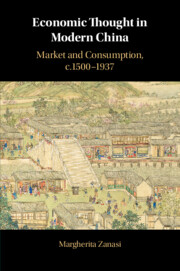HIS 260 (Campus) - Modern China
Library Book Search
Find books in the library catalog by searching below!
You can locate books and other physical materials by using the Library Book Search tool in the search box above, which searches the library's catalog. The catalog is a list of all the print resources the library has (including print books, print journals, and more).
Selected eBook Databases
-
ACLS Humanities E-Book Project This link opens in a new windowOnline collection of searchable high quality books in the Humanities
-
Ebook Central - ProQuest This link opens in a new windowEbook Central offers titles from hundreds of trusted publishers on one modern, intuitive platform Its intuitive, mobile-optimized design lets researchers get “anytime access” to the content they need – from a single chapter to an entire book. Previously called "Ebrary Ebooks"
-
eBook Collection - EBSCO This link opens in a new windowAccess to full-text e-books in the fields of education, psychology, biology & life sciences, business, economics & management and general social sciences plus numerous e-books in the public domain. Read this FAQ to learn how to download an ebook from EBSCO. EBSCO recommends Firefox when accessing this database. If you use Safari, please use Safari 11. If you are using a IOS device, please have either IOS 9 or 11 installed as there have been reports of issues with IOS 10.
Selected Books
-
Confucianism and Modern China by Reginald Fleming Johnston This link opens in a new window
Call Number: Available OnlineISBN: 9781316106570Publication Date: 2015The British colonial administrator and scholar Sir Reginald Fleming Johnston (1874-1938) travelled extensively in the Far East, developing a deep interest in Chinese culture and spirituality. His fourteen-year posting to the relatively quiet port of Weihaiwei allowed him to indulge this interest and to travel to places not usually visited by Europeans. Well acquainted with the philosophy of Confucius, Johnston had happily quoted the Confucian classics in his court judgments at Weihaiwei. In 1918, he was appointed tutor to the young Puyi (1906-67), who had been China's last emperor before his forced abdication. This 1934 publication, developed from lectures, presents an accessible interpretation of the tenets and fortunes of Confucianism, notably the impact of the New Culture Movement on the philosophy's place in Chinese society. Among other works, Johnston's Buddhist China (1913) and Twilight in the Forbidden City (1934) are also reissued in this series. -
The Creation of Modern China, 1894-2008 by Iain Robertson Scott This link opens in a new window
Call Number: Available OnlineISBN: 9781783084982Publication Date: 2016China preoccupies us; yet its recent past is still relatively unfamiliar. No country has undergone a greater period of sustained and turbulent change than China in the twentieth century, but it has emerged again as a leading global power. It is, therefore, more important than ever to understand the society it has become and its rise to such influence. This timely study uses recent research to explore how China has been transformed from an economic and political backwater at the start of the twentieth century to its current pre-eminent position one hundred years later. -
 Economic Thought in Modern China Market and Consumption, c.1500–1937
by
Margherita Zanasi This link opens in a new window
Call Number: Available OnlineISBN: 9781108752787Publication Date: 2020In this major new study, Margherita Zanasi argues that basic notions of a free market economy emerged in China a century and half earlier than in Europe. In response to the commercial revolutions of the late 1500s, Chinese intellectuals and officials called for the end of state intervention in the market, recognizing its power to self-regulate. They also noted the elasticity of domestic demand and production, arguing in favour of ending long-standing rules against luxury consumption, an idea that emerged in Europe in the late seventeenth and early nineteenth centuries. Zanasi challenges Eurocentric theories of economic modernization as well as the assumption that European Enlightenment thought was unique in its ability to produce innovative economic ideas. She instead establishes a direct connection between observations of local economic conditions and the formulation of new theories, revealing the unexpected flexibility of the Confucian tradition and its accommodation of seemingly unorthodox ideas.
Economic Thought in Modern China Market and Consumption, c.1500–1937
by
Margherita Zanasi This link opens in a new window
Call Number: Available OnlineISBN: 9781108752787Publication Date: 2020In this major new study, Margherita Zanasi argues that basic notions of a free market economy emerged in China a century and half earlier than in Europe. In response to the commercial revolutions of the late 1500s, Chinese intellectuals and officials called for the end of state intervention in the market, recognizing its power to self-regulate. They also noted the elasticity of domestic demand and production, arguing in favour of ending long-standing rules against luxury consumption, an idea that emerged in Europe in the late seventeenth and early nineteenth centuries. Zanasi challenges Eurocentric theories of economic modernization as well as the assumption that European Enlightenment thought was unique in its ability to produce innovative economic ideas. She instead establishes a direct connection between observations of local economic conditions and the formulation of new theories, revealing the unexpected flexibility of the Confucian tradition and its accommodation of seemingly unorthodox ideas.
